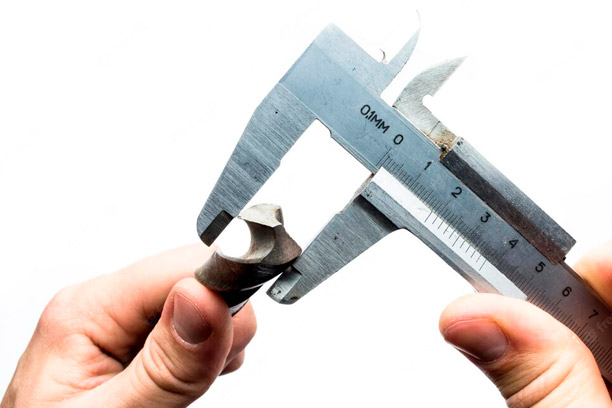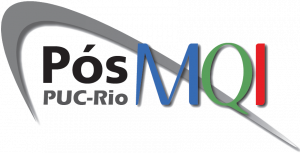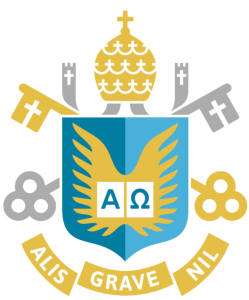Goals
 The central objective of the Graduate Program in Metrology (PostMQI) of PUC-Rio is the training and training of human resources specialized in metrology and its related areas to meet the needs of the National System of Metrology, Standardization and Industrial Quality (Sinmetro). More specifically, it aims to train professionals with solid knowledge in areas of Basic Industrial Technology to meet specific needs of companies and organizations that want to direct the training and training of their professionals to specific areas aimed at the development of competitiveness and sustainable development. In this context, The PostMQI aims to specialize the training of engineers, physicists and chemists already well trained, empowering them to work the interface of their specialties with the science and technology of measurements.
The central objective of the Graduate Program in Metrology (PostMQI) of PUC-Rio is the training and training of human resources specialized in metrology and its related areas to meet the needs of the National System of Metrology, Standardization and Industrial Quality (Sinmetro). More specifically, it aims to train professionals with solid knowledge in areas of Basic Industrial Technology to meet specific needs of companies and organizations that want to direct the training and training of their professionals to specific areas aimed at the development of competitiveness and sustainable development. In this context, The PostMQI aims to specialize the training of engineers, physicists and chemists already well trained, empowering them to work the interface of their specialties with the science and technology of measurements.Resulting from an interministerial action of the Federal Government to supply specialized human resources in critical areas of industrial competitiveness, The PostMQI began with a single area of concentration, called Metrology for Industrial Quality. As a result of the gathering of efforts, competencies and laboratory infrastructures of the Scientific Technical Center of the University, The PostMQI quickly consolidated itself as the Center’s interdepartmental program. In the context of its broad view of science, technology (and art) of measurements, it advocates education and research in metrology according to a systemic model of sustainability, which integrates 3 dimensions of the sustainable development of organizations (economic, social and environmental). A vision that transcends the use of metrology only as an instrument of industrial competitiveness and improvement of products and processes that dispute competitive markets. A broader view of the use of measurements as instruments for preserving the environment, evaluating air quality, water and living conditions as a whole. In the context of this new logic of innovation and sustainability, it formalized with CAPES the change of its area of concentration, which evolved to “metrology for quality and innovation”, advocating sustainability in one of its lines of research.
Among the many benefits and impacts of metrology, standardization, quality and innovation, are: introduction of new standards and new measurement techniques; evaluation and expression of measurement uncertainty; conformity assessment, increased metrological reliability and reduced uncertainties associated with measurements; intelligent instrumentation and sensing, integration and automation of measurement; improvement of tolerances in manufacturing processes; rationalisation of production; quality management and non-conformities, metrological audits; optimization of R&D processes with the incorporation of innovation; productivity gains in service sectors with the development of standards and certifications; reduction of waste. As for standardization, we highlight the systematization and rationalization of production methods and processes and business and industrial management. The coding of methods and processes in a universal way allows, in turn, that they can be introduced in a harmonic way in the different segments of the economy. In summary, an articulation of applied knowledge that contributes to the promotion of competitiveness and improvement of processes and products and to the quality of life of the citizen from the perspective of sustainable development.
Linked to CAPES Engineering III, the Program benefits from the diversified academic and scientific training of its faculty, originating from various departments and institutions, which cooperates in the development of new interfaces. By proposing cooperative projects it explores new interdisciplinarities, contributing to interdisciplinary integration.
In addition to training teachers and researchers for the academic environment, the Program empowers professionals for the labor market. Promotes an effective approach with companies by directing their research effort to projects that reflect the solution of real problems that require advanced knowledge of metrology, quality and innovation.
Based on the success of its experience in recent years and attentive to the new metrological demands coming from a society of innovation and information (still in gestation in Brazil), the Program will continue to evolve. Its actions will evolve in order to fill an existing void in the training of professionals with interdisciplinary vocation in metrology and with solid knowledge in Basic Industrial Technology (BIT), Innovation Management and Sustainability.
The recently elaborated PósMQI Strategic Plan declares the following strategic drivers:
The Mission
To act as a Program of excellence and innovation in teaching and research in Metrology and its related areas, forming high-level masters, with distinctive skills and critical sense to meet the demands of society.
The Vision
To strengthen itself as a world-class teaching and research center in Metrology and its related areas, committed to the advancement of science and technology for the sustainable development of the country.

